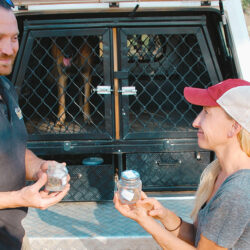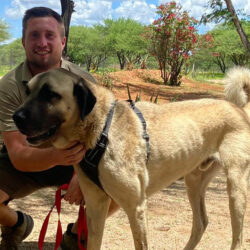SteamBioAfrica – Developing Clean Sustainable Energy at CCF
-
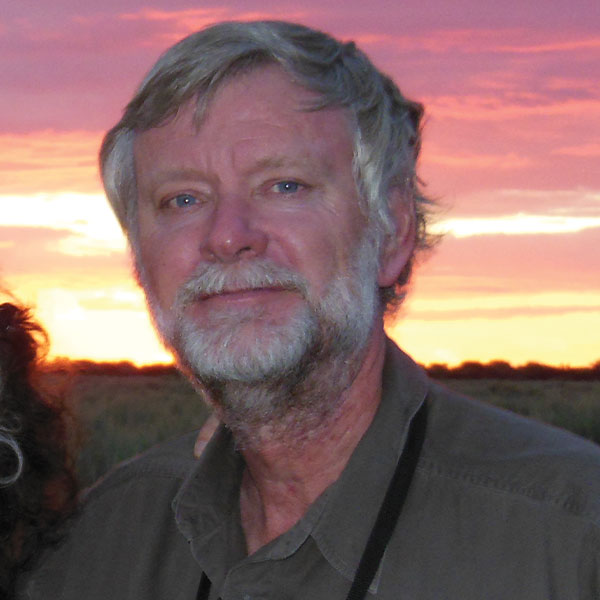
- by Dr. Bruce Brewer January 31, 2023
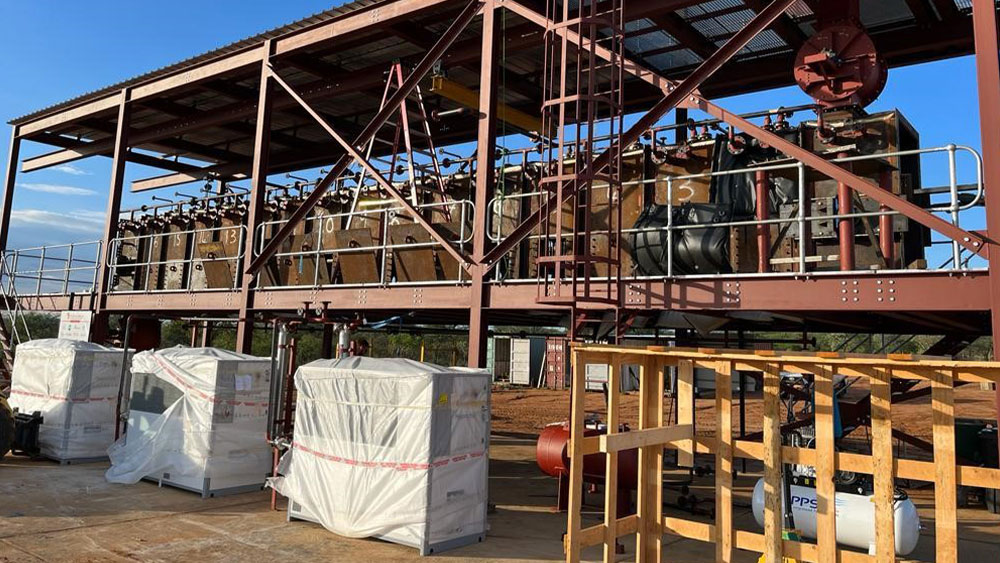
SteamBioAfrica is a collaboration between Africa and Europe that aims to create long-term sustainable benefits across southern Africa by addressing two major challenges in the region: the need for clean, secure, and reliable energy, and the need to address the problem of invasive woody bush species. The project is supported with funding from the EU Horizon 2020 funding program (EU Grant Agreement no: 101036401).
The project’s goal is to produce a clean-burning, high-value solid biofuel that has properties similar to coal. By creating value from the problem bush it will encourage its harvesting This will promote land restoration to productive use, and create jobs and wealth at a local level. The biofuel will be a healthier and more sustainable alternative to charcoal and wood used for domestic household cooking and heating, it will also replace coal in power generation.
In addition to the benefits mentioned above, SteamBioAfrica also helps the Cheetah Conservation Fund to save the cheetah in the wild by:
- Improving habitat by removing overgrown native thornbush
- Creating jobs in the green energy sector
- Improving the lives of the people who share their landscape with predators like the cheetah
- Enabling local communities to earn a living while preserving the environment
- Enhancing soil fertility
The project involves an innovative technology, continuous superheated steam processing at temperatures of up to 260C. Processing woody biomass (plant material) at these temperatures and in low-oxygen environments is called torrefaction. Torrefaction is a process in which biomass is transformed and becomes more coal-like, burning cleaner, being stable and able to be stored outside, and with higher energy content than raw biomass. The innovative SteamBioAfrica process is a significant advancement from any existing torrefaction technologies. It has already been successfully demonstrated at temperatures of up to 230C at an industrial scale in Northern Spain using hardwoods, softwoods, vineyard and olive prunings.
A new 250kg/hour throughput demonstrator plant is being built at CCF, with plans to be commissioned by April. A throughput demonstrator plant is a type of pilot plant that is used to demonstrate and test the capabilities of a specific production process or technology. It is typically used in the research and development phase of a project. Its purpose is to provide the technical and economic confidence in progressing to investing in industrial scale operations.
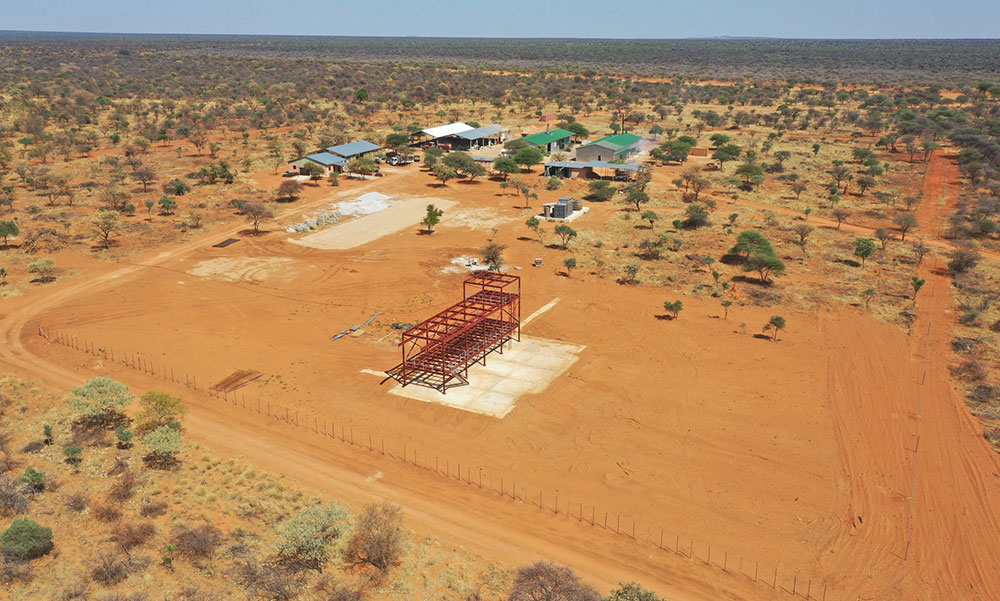
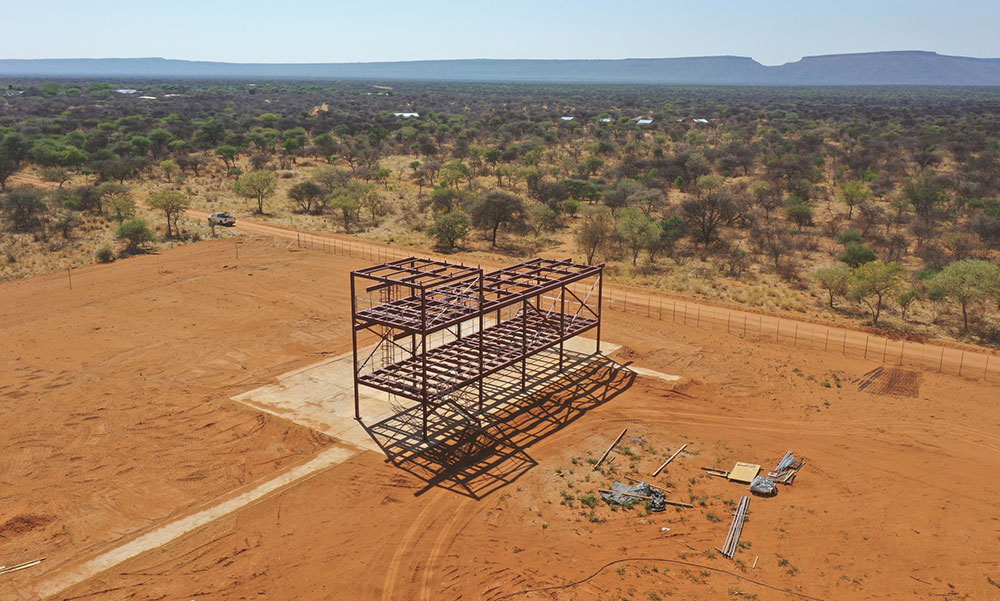
The SteamBioAfrica demonstrator plant has been designed to produce a clean-burning, high-value solid biofuel that has properties similar to coal. The plant is designed with a capacity of 250kg/hour, meaning that it can process 250 kilograms of biomass per hour. It will be used to test and optimize the process according to material inputs and desired market outputs. In addition to trialing material local to CCF on the plant, it will also evaluate other problem materials from elsewhere in Namibia and from Botswana and South Africa. Once commissioning is complete the plant will continue to operate at the Cheetah Conservation Fund’s Biomass Technology Centre until mid-2024.
The viability and sustainability of the life cycle of the project will also be assessed. This refers to the ability of the SteamBioAfrica project to produce a clean-burning, high-value solid biofuel that can replace coal in a sustainable way, technically and economically feasible without subsidies, environmentally friendly and socially beneficial. The team will be looking at market acceptance and the capacity for domestic use including identifying local value chains to enable local benefit. We will also confirm that post-harvest, the soil fertility is enhanced.
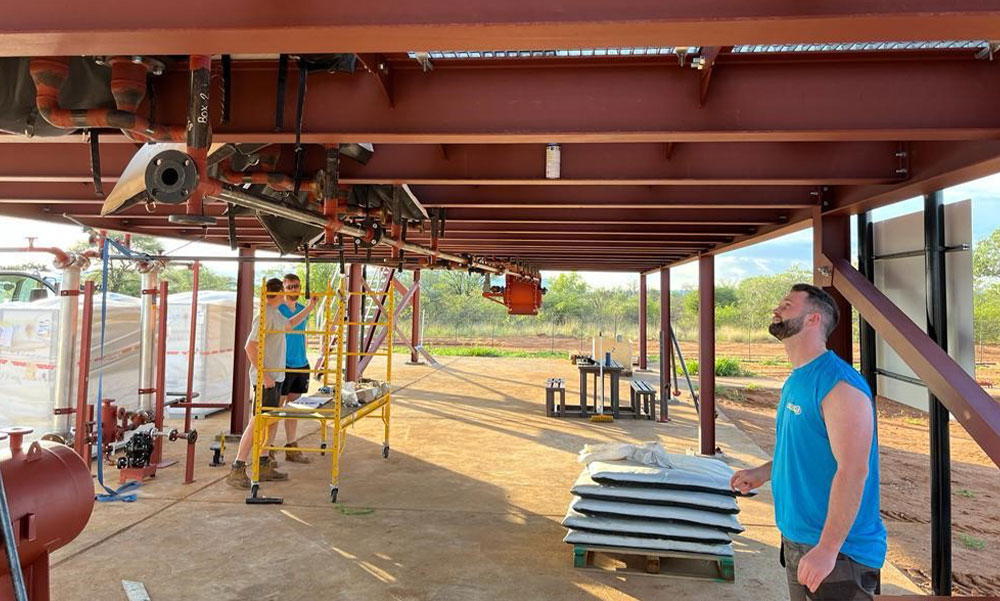
The project is led by a fifteen-partner industry and research consortium from Africa and Europe, and it is funded by the European Union’s Horizon 2020 research and innovation program under grant agreement No 101036401. SteamBioAfrica‘s goal is to provide a cleaner and more sustainable alternative for energy and to tackle the problem of invasive woody biomass species, it also aims to create jobs and wealth at the local community level.
Related Reading
-
February 28, 2023
#ScatWeek Kicks Off at CCF as Trainers Share Their Experience -
February 23, 2023
Bruno’s Snake Bite – An LGD Emergency -
February 9, 2023
International Day of Women and Girls in Science
